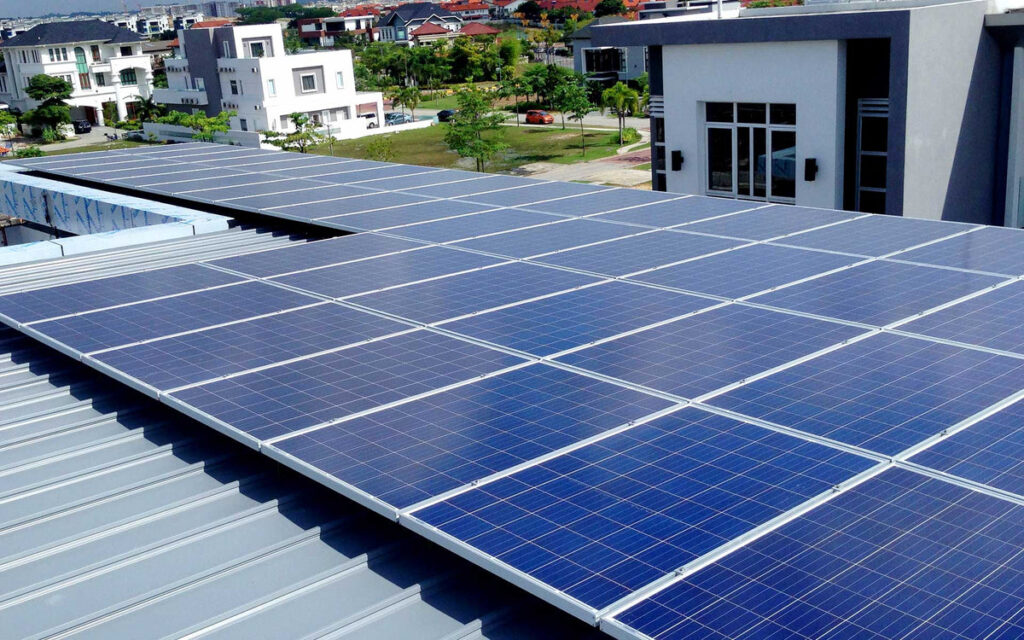Are you considering using solar energy but feeling overwhelmed? Where can you buy solar panels? You are not alone! Although there are various ways to purchase solar panels, one prominent option is to buy directly from a reputable solar company or distributor. This method can often provide high-quality products, expert advice, and support throughout the installation process. Five Ways to Buy Solar Panels
Below, we will explore five popular methods and detail their advantages and disadvantages in a separate table for a clear illustration. 1. Solar Companies Buying solar panels directly from solar companies is a great way. Major brands such as SunPower, LG Solar, and Canadian Solar sell their products directly through their websites. Buying directly from the manufacturer has its benefits. You can get first-hand information about the product, obtain customer support, and usually have the best warranty.
Our website, shieldenchannel.com, offers multiple choices. We also provide free consultations to guide you through the purchase process. From choosing the right product to installation, our professional customer support can assist you at any stage.
Key questions to ask before buying solar panels: Do I need batteries? If your energy needs fluctuate or you live in an area with frequent power outages, investing in batteries may be worthwhile. Otherwise, you may be fine without them. Advantages of batteries: Energy independence: You can use stored energy when solar production is low. Backup power: In case of power outages, batteries can keep your essential appliances running. Disadvantages of batteries: Initial cost: Batteries can significantly increase the overall cost of your solar system. Maintenance: Batteries require monitoring and maintenance to ensure their lifespan. How many solar panels do I need? Determining the number of solar panels you need depends on your energy consumption and the efficiency of the selected panels. Here’s how to assess your needs: Calculate your energy usage: Review your electricity bills for the past year to understand your average monthly electricity consumption in kilowatt-hours (kWh). Consider panel efficiency: Different solar panels have different efficiency levels. More efficient panels can generate more energy in a smaller space. Research the wattage of the panels you are considering to calculate how many panels you need to reach your energy goals. Example calculation: If your monthly electricity consumption is 600 kWh and you choose solar panels that generate 300 watts of electricity per hour, you will need approximately 20 solar panels (based on average sunlight hours) to meet your needs. Understanding your energy needs in advance will ensure you buy the right number of solar panels for your home. Which type of solar panel is right for me? When choosing a solar panel type, consider your budget, available space, and aesthetic preferences. Consulting a solar expert can also help you make the best choice based on your situation. Monocrystalline panels: Advantages: High efficiency, long lifespan, space-saving. Disadvantages: Generally more expensive than other types. Polycrystalline panels: Advantages: Usually lower cost and relatively high efficiency. Disadvantages: Slightly lower efficiency than monocrystalline and requires more space. Thin-film panels: Advantages: Lightweight and flexible, can be integrated into various surfaces. Disadvantages: Lower efficiency and requires more space. The best solar panels on the market: When choosing solar panels, consider quality, efficiency, and price.The following table lists some of the most highly regarded solar panels on the market currently, along with their main functions and estimated prices. Brand: LG Neon R Efficiency: 21.4% Warranty (years): 25 Main functions: High efficiency, excellent performance in low light, durable design. Estimated price per panel: $350 – $450. Brand: SolarMaxeon 3 Efficiency: 22.6% Warranty (years): 25 Main functions: Industry-leading efficiency, excellent temperature coefficient. Estimated price per panel: $400 – $500. Brand: Canadian Solar BiKu Efficiency: 19.9% Warranty (years): 25 Main functions: Double-sided technology, good performance in partially shaded environments. Estimated price per panel: $250 – $350. Brand: Q CELLS Q.PEAK DUO Efficiency: 20.6% Warranty (years): 25 Main functions: High efficiency, high reliability, anti-reflective coating. Estimated price per panel: $300 – $400. Brand: Trina Solar Honey M Efficiency: 20.4% Warranty (years): 10 Main functions: Outstanding performance, good warranty options. Estimated price per panel: $200 – $300. The hottest solar inverters on the market. Choosing the right solar inverter is crucial for optimizing the performance of a solar panel system. The following table highlights some of the most highly regarded solar inverters, along with their main functions and estimated prices. Brand: SMA Sunny Boy Type: String inverter Efficiency: 97.5% Warranty (years): 10 Main functions: Integrated Wi-Fi, advanced monitoring options. Estimated price: $1,200 – $1,500. Brand: SolarEdge HD-Wave Type: Optimizer inverter Efficiency: 99% Warranty (years): 12 Main functions: Optimized for each panel, extremely high efficiency. Estimated price: $1,300 – $1,600. Brand: Enphase IQ 7 Type: Microinverter Efficiency: 97% Warranty (years): 25 Main functions: Module-level monitoring, flexible design. Estimated price: $150 – $200 per piece. Brand: Fronius Primo Type: String inverter Efficiency: 97.8% Warranty (years): 10 Main functions: Suitable for smart grids and has a user-friendly interface. Estimated price: $1,000 – $1,400. Brand: Inland Radian Type: Off-grid inverter Efficiency: 95% Warranty (years): 5 Main functions: Very suitable for off-grid systems and customizable. Estimated price: $2,000 – $3,000.
